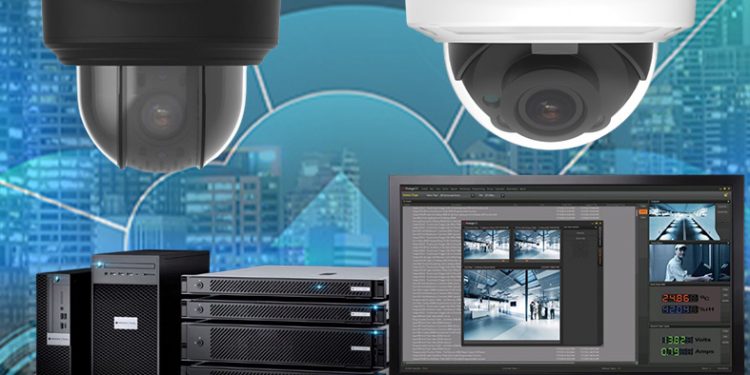n the intricate world of security CCTV systems and security alarms stands as a testament to the ever-evolving landscape of public and private safety. These systems, pivotal in deterring unauthorized activities and documenting events, vary widely in sophistication and application, from modest residential setups to complex, professional-grade networks in commercial environments. A crucial aspect of this security matrix is the dichotomy between professional-grade IP security cameras and consumer-grade cameras, which differ significantly in terms of failure rates, reliability, longevity, warranty, and feature sets.
Professional vs. Consumer Grade Cameras
Professional-Grade IP Security Cameras: These cameras are designed with robustness and longevity in mind. They are engineered to withstand harsh environmental conditions, offering superior image quality, enhanced night vision capabilities, and advanced analytical features like motion detection and facial recognition. Professional-grade cameras are often part of a larger integrated security system, providing real-time monitoring and alerts to security personnel. Their reliability is paramount, with lower failure rates due to higher quality components and rigorous testing protocols.
Consumer-Grade Cameras: Marketed towards the general public, these cameras are more accessible in price and installation ease. Consumer-grade security cameras have improved over the years, now offering high-definition video and connectivity features such as Wi-Fi and cloud storage. However, they may not possess the same durability or advanced features as their professional counterparts. The failure rate is generally higher in consumer-grade cameras due to less stringent manufacturing standards and the use of lower-quality materials.
Comparing Key Aspects
Failure Rate and Reliability: Professional-grade cameras have a lower failure rate compared to consumer-grade cameras. This reliability stems from the use of high-quality materials and components designed to operate in various environmental conditions and for extended periods. Consumer cameras, while cost-effective, may fail more frequently, especially in demanding conditions.
Longevity: The expected lifespan of professional-grade cameras far exceeds that of consumer-grade ones. With maintenance, professional cameras can operate for many years, making them a long-term investment. Consumer-grade cameras, on the other hand, might need replacement every few years, especially in outdoor or rigorous settings.
Warranty: Warranties for professional-grade cameras often cover longer periods, reflecting confidence in their durability and performance. Consumer-grade cameras usually come with shorter warranty periods, aligning with their anticipated service life and cost.
Features: Professional-grade cameras offer a suite of advanced features tailored for comprehensive security needs, including higher resolution imaging, superior night vision, and advanced motion detection algorithms. They integrate seamlessly with other security systems, providing a holistic approach to site security. Consumer-grade cameras offer basic features that suffice for simple home security purposes but may lack the sophistication needed for more complex security requirements.
Cybersecurity Aspects
Adding to the complexity of choosing the right security camera system is the crucial aspect of cybersecurity. Non-compliant cameras, often found in the consumer-grade category, can present significant cybersecurity risks. These devices may lack robust security protocols, making them vulnerable to hacking and unauthorized access. In recent years, instances of camera systems being compromised to gain entry into private networks have underscored the importance of cybersecurity in CCTV systems.
Professional-grade cameras, conversely, are generally designed with stronger cybersecurity measures. They often include features like end-to-end encryption, secure boot processes, and regular firmware updates to protect against emerging threats. These cameras comply with industry-standard security protocols, reducing the risk of cyber intrusions and data breaches.
The cybersecurity of a camera system extends beyond the hardware to encompass how data is stored and transmitted. Consumer-grade cameras that rely on cloud storage might expose users to data theft if the cloud service lacks adequate security measures. Professional systems, on the other hand, often offer more secure data management options, including local storage and encrypted data transmission.
Final Thoughts
The choice between professional-grade and consumer-grade CCTV and security alarm systems depends on the specific needs, budget, and expected performance standards. Professional-grade cameras offer enhanced reliability, longevity, and features suited for high-stakes security environments, while consumer-grade cameras provide an affordable and accessible option for basic home security. Understanding the nuances of each type ensures that individuals and businesses can make informed decisions, balancing cost against the imperative of security and peace of mind.















